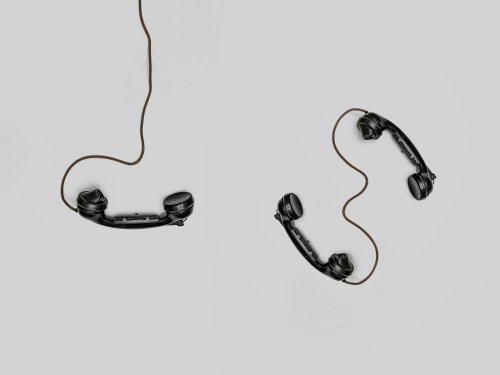6 Harsh Facts About Long Distance Relationships [Not what You Think]
This article talks about the six harsh facts about long-distance relationships—the emotional challenges, missed moments, and ways to keep love alive despite the distance.
![6 Harsh Facts About Long Distance Relationships [Not what You Think]](https://lovertree.com/uploads/images/202311/image_750x_6563d60f3b3e7.jpg)
Being in a long-distance relationship is like setting sail on an unpredictable ocean. The horizon looks beautiful, the journey feels adventurous, and the hope of reunion keeps you afloat. But beneath the surface lies a current of challenges—loneliness, uncertainty, and emotional fatigue—that can test even the strongest love stories.
In an era where people fall in love across borders and time zones, long-distance love has become increasingly common. Technology has made it possible to stay connected, yet the physical separation can feel heavier than ever. While many couples dream of making it work, few realize the mental, emotional, and practical realities that come with it.
This article takes an honest look at the harsh facts about long-distance relationships, the struggles, emotional toll, and coping mechanisms that help couples endure the distance. It’s not meant to discourage you but to help you see long-distance love with clarity, courage, and realism.

1. You Will Miss Out on the Everyday Moments That Build Connection
The most painful truth about being apart is not the absence of big milestones; it’s missing the small, ordinary moments that create intimacy.
When you’re in a long-distance relationship, you don’t get to share spontaneous laughter over breakfast, hold hands while walking, or cuddle on the couch during a movie night. Birthdays, anniversaries, and holidays become video calls instead of shared experiences. Even when your partner is only a call away, the physical gap creates an invisible barrier.
Those simple, everyday interactions, cooking together, watching your favorite show, or just lying next to each other, are the threads that weave emotional closeness. Without them, you can begin to feel emotionally disconnected even if you talk every day.
Coping Strategy: Stay Emotionally Present Despite the Distance
While physical presence is irreplaceable, emotional presence can bridge some of that gap. Make communication consistent and meaningful—not just daily check-ins, but deep, vulnerable conversations about your day, your thoughts, and your feelings.
Use technology creatively. Schedule virtual date nights, send handwritten letters, exchange playlists, or mail small gifts that remind them of you. Share photos, funny videos, or a daily “good morning” and “goodnight” text. These gestures, though simple, help nurture emotional intimacy and make the distance feel smaller.

2. The Challenges Will Test Your Emotional Strength
Long-distance relationships demand a level of emotional maturity, trust, and communication that not every couple is ready for. Between time zone differences, conflicting schedules, and unpredictable life events, the relationship can quickly become stressful.
You’ll face loneliness, frustration, jealousy, and moments of doubt. There will be times when you’ll crave your partner’s presence and question whether the effort is worth it. Misunderstandings are easier to spark when you can’t read each other’s body language or tone in person.
Moreover, external pressures—from family skepticism to the cost of travel—can intensify the emotional burden. Many couples underestimate how exhausting it can be to maintain closeness across distance.
Coping Strategy: Strengthen Communication and Build Trust
The secret to overcoming these challenges lies in clear expectations and honest communication. Talk openly about what both of you need—how often you’ll talk, what your long-term goals are, and how you’ll handle disagreements.
Avoid assumptions. If something feels off, discuss it instead of letting insecurity grow. Practice patience, empathy, and reassurance. Trust doesn’t develop overnight, but small acts of consistency—being transparent, reliable, and emotionally supportive—will fortify your relationship over time.
Remember: in a long-distance setup, trust is your anchor and communication is your compass.

3. The Uncertainty Can Be Overwhelming
One of the hardest truths about long-distance relationships is that you don’t know if they will last. Even with the deepest love, uncertainty hangs in the air. Will your paths eventually align? Will your emotional connection remain strong when physical closeness returns?
The uncertainty can lead to anxiety and emotional exhaustion. When you don’t have a clear timeline for being together, the relationship can start to feel like an endless waiting game. Over time, hope can turn into frustration if plans keep changing or goals feel unattainable.
Coping Strategy: Focus on the Present While Planning for the Future
To handle uncertainty, couples must learn to balance hope with realism. Celebrate the present moments instead of obsessing over the future. At the same time, set tangible plans—discuss when and how you might eventually close the distance. Having a shared vision gives both partners something to look forward to.
Also, maintain your individual growth. Continue to build your own life, friendships, and goals instead of pausing everything for the relationship. When both partners find emotional fulfillment on their own, a strong long-distance relationship flourishes.

4. Loneliness Is Inevitable—But It Doesn’t Have to Break You
No matter how much love you share, loneliness will visit you at some point. Some nights, you'll want your partner to hold you, and some days, you'll feel distant. The absence of physical closeness can amplify emotional distance, especially during stressful or low moments.
But loneliness doesn’t have to mean emptiness. It can also be an opportunity to learn independence, patience, and emotional resilience.
Coping Strategy: Build a Life That Nourishes You
Don’t let your entire happiness depend on your partner’s availability. Invest in your hobbies, friendships, and passions. When you maintain a fulfilling life outside the relationship, you bring more balance and positivity into your connection.
Instead of fighting loneliness, accept it as part of the journey. Use it to understand yourself better and to appreciate your partner more deeply when you reunite.

5. Long-Distance Relationships Are Not for Everyone—And That’s Okay
It’s important to acknowledge that not everyone is built for long-distance love. Some people thrive on emotional connection through conversation; others need physical closeness to feel secure.
A long-distance relationship can work only when both partners share similar expectations, effort levels, and emotional endurance. When one person gives more than the other, imbalance and resentment can quietly erode the bond.
Coping Strategy: Be Honest About What You Can Handle
Before committing to a long-distance setup, ask yourself: Can I handle the emotional highs and lows? Am I willing to wait, communicate, and compromise consistently?
Being honest about your emotional capacity isn’t a sign of weakness—it’s a form of self-awareness. It’s better to acknowledge your limits early than to force a relationship that will leave both people drained.

6. Distance Can Either Strengthen or Break You
The truth is, distance magnifies reality. It doesn’t automatically weaken love, but it reveals its true nature. If your relationship is built on strong emotional connection, mutual respect, and trust, the distance will deepen your bond. However, if your relationship relies on convenience or routine, it will begin to show signs of weakness.
Many couples discover the strength of their love only when they’re apart. The longing, the patience, and the sacrifices can either transform your relationship into something unshakable—or highlight incompatibilities that were easy to ignore before.
Coping Strategy: Turn the Distance into Growth
Use this time apart to strengthen your foundation. Communicate intentionally, share goals, and support each other’s personal development. Plan visits when possible, and make those moments count—quality matters more than quantity.
When you finally reunite, you’ll cherish your partner more deeply and appreciate the resilience that distance helped you build.

The Emotional Reality: Love Is Not Always Enough
One of the hardest pills to swallow is that love alone doesn’t guarantee success. Even if you care deeply for each other, logistics, timing, or personal growth can get in the way.
Relationships require effort, sacrifice, and sometimes acceptance that love may change shape or direction. Facing this truth doesn’t diminish your feelings; it simply honors the complexity of real love.
If a long-distance relationship fails, it's not a sign of failure, but rather a testament to the learning, growth, and courageous love you both experienced despite the challenges.

Conclusion
A long-distance relationship is not a fairy tale; it’s a test of patience, communication, and emotional strength. It’s filled with missed moments, deep longing, and nights spent staring at your phone. But within those struggles lies something extraordinary—a love that chooses connection over convenience.
The harsh facts are undeniable: you’ll face loneliness, miscommunication, and uncertainty. But if you approach it with honesty, trust, and emotional commitment, distance can become the forge that strengthens your bond.
Whether your story ends in reunion or redirection, remember this—true love doesn’t depend on proximity; it depends on persistence. Every message sent, every tear shed, and every effort made brings you closer to understanding what it means to love beyond limits.
Because in the end, it’s not just about surviving the distance—it’s about learning to love deeply, fully, and fearlessly, no matter how many miles lie between you.

Share
What's Your Reaction?
 Like
0
Like
0
 Dislike
0
Dislike
0
 Love
0
Love
0
 Funny
0
Funny
0
 Angry
0
Angry
0
 Sad
0
Sad
0
 Wow
0
Wow
0















Great Work Dani, keep it up!
Thank You :)